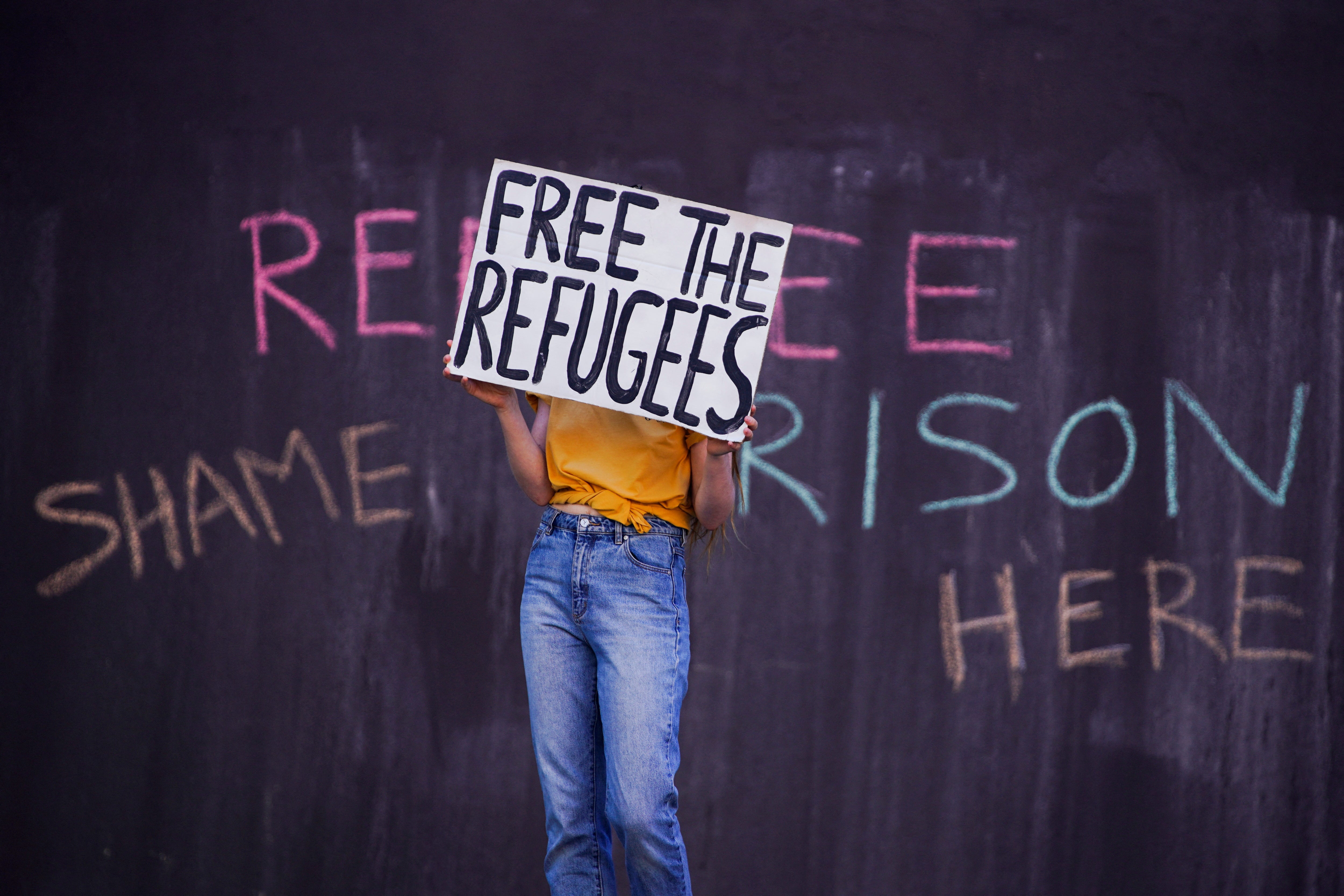How the Novak Djokovic saga could pave way for more political deportations from Australia
Legal experts say the decision to cancel the tennis star’s visa was driven by politics rather than policy and are calling for scrutiny of the government’s broad immigration powers, reports Adam Hancock in Sydney

Novak Djokovic’s deportation from Australia following an 11-day visa saga sparked global interest in the fine print of the country’s immigration rules, with legal experts warning that the case could set a precedent for more expulsions on political grounds.
While the tennis star is now back home in Belgrade as the Australian Open unfolds without its defending champion, lawyers and activists are drawing attention to the extraordinary powers held by immigration ministers and advocating for an inquiry into a visa cancellation regime described as “dangerously dysfunctional and politicised”.
The Serb was deported on Sunday after Australia’s immigration minister Alex Hawke cancelled his visa, stating that Mr Djokovic’s presence in the nation could pose a risk to public health by fostering anti-vaccine sentiment, and even result in civil unrest.
Mr Djokovic challenged the cancellation on the grounds the minister had acted irrationally, but Australia’s federal court dismissed the appeal. The court will publish the reasons for its decision on Thursday.
The saga created a geopolitical storm - with talks held between the leaders of Australia and Serbia - and spurred debate worldwide over the rights of the unvaccinated as well as governments’ border policies during the pandemic.
In Australia, the ruling has concerned migration and legal experts who fear that more people could be deported on dubious grounds – from their political views to suspicion they may commit a crime – while having limited scope to appeal.
“Cancelling a visa in these circumstances does set a worrying precedent, especially as the cancellation appears to have been driven more by politics than by substance”, said Abul Rizvi, former deputy decretary at Australia’s Department of Immigration.
“This creates the precedent that all prominent non-citizens with anti-vaccination views will be banned from Australia, even if there is no evidence they would express or promote those views whilst in Australia,” he told The Independent.
The unvaccinated Mr Djokovic was initially granted permission to enter Australia after receiving a medical exemption from two separate independent health panels.
The Djokovic decision will likely embolden the government in its use of cancellation powers for political ends
On arrival in Melbourne he was detained by Border Force officials, who claimed his exemption – based on having recently been infected with Covid - did not meet their requirements and cancelled his visa.
Such cancellations made by immigration officials at Australia’s borders can only be challenged through the courts on narrow grounds, according to experts.
Border Force’s decision was overturned by a judge, but days later Mr Hawke stepped in to cancel the Serb’s visa on "health and good order" grounds, claiming that the decision was “in the public interest”.
Legal experts have cast doubts over how this decision was reached.
“There was little if any evidence that Mr Djokovic encouraged or incited anti-vaccination sentiment or civil unrest,” said Michael Stanton, president of Liberty Victoria, a civil rights group. “Ironically, the intervention by the immigration minister is more likely to have made Mr Djokovic a martyr for anti-vaccination advocates.”

“The Djokovic case highlights the ‘God powers’ available to the immigration minister,” he added. “The power to cancel Mr Djokovic’s visa on public health and good order grounds is just one of dozens of broad and permissive powers available to the minister.”
For seasoned observers of Australian migration matters, the authority granted to individual ministers is a cause for concern.
“It demonstrates the danger of personal ministerial powers, and the way they can be exercised to effectively override meaningful review by the courts”, said Sanmati Verma, a senior lawyer at Clothier Anderson Immigration Lawyers.
“Visa cancellations and personal decisions by the minister have increased by the thousands since 2014. The Djokovic decision will likely embolden the government in its use of cancellation powers for political ends,” she added.
Ministerial powers to cancel visas were expanded in 2014 when the country’s Migration Act was widened.
Government data shows that 946 visas were cancelled in the latest financial year, under provisions of character grounds – namely if someone has committed a crime. However, visas can also be revoked if the state believes a person could engage in criminality once in the country.
Ms Verma is advocating for an inquiry to allow for public scrutiny over the Australian visa cancellation system, which she describes as “dangerously dysfunctional and politicised”.
The government’s erratic handling of Mr Djokovic’s case was criticised at home and abroad, and could be used as political ammunition against Prime Minister Scott Morrison ahead of a federal election that must be held before the end of May.
While Australian law dictates that the Serb cannot apply to re-enter the country for three years, Mr Morrison has hinted there might be a workaround for next year’s tournament.
Despite the chaotic process and back-and-forth, public support for sending Mr Djokovic home was strong within Australia. A NewsCorp poll of nearly 60,000 people found that 83 per cent were in favour of the government seeking deportation.

The tennis star’s anti-vaccination stance is also the polar opposite of the message conveyed by the Australian government, who have repeatedly encouraged people to get Covid shots in order to move away from lockdowns.
Ultimately the decision to expel Mr Djokovic over his beliefs has caused concerns among lawyers over the decision-making process that will be used in future deportation cases.
“Irrespective of whether you agree or disagree with Djokovic, it concerns me where people are made an example of for the benefit of political point scoring”, said Carina Ford, an accredited immigration law specialist based in Melbourne.
“The overall concern in this case is how the ‘risk to good order’ was assessed. It could mean anyone who has a relatively high profile and may take a stance on an issue risks falling within this power because they may incite discord,” she added.
Throughout the pandemic, Australia’s closed-border policy has seen it labelled as a ‘fortress’. Keeping the country sealed off did help the government to pursue its Covid-zero strategy, but in keeping the virus out they also kept citizens out too.
For those who have campaigned against these measures, the Djokovic saga is further evidence of strict measures being used to fortify the borders.
“This decision confirms the harsh treatment of visa holders, migrants, refugees, and indeed citizens, by Border Force and the immigration minister and thus sets a precedent to continue to cancel visas on arbitrary grounds for political point scoring”, said Nichola Calvani from the campaign group Reconnect Australia.
“We are concerned that this ‘fortress’ mentality has seeped beyond the politics of border restrictions into the mindsets of everyday Australians, who we hope will never be on the receiving end of these rules”.






Join our commenting forum
Join thought-provoking conversations, follow other Independent readers and see their replies
Comments